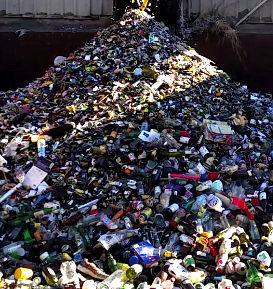Maitland makes green admission
 The Maitland City Council says it has struggled to tell ratepayers that it has been selling their recyclable waste to China.
The Maitland City Council says it has struggled to tell ratepayers that it has been selling their recyclable waste to China.
A NSW senate inquiry has been looking into the quantity of solid waste generated and the rate of diversion of solid waste for recycling.
It is also investigating the accreditation and management of landfills, the extent of illegal landfilling, and what role landfill levies play in determining where materials end up.
Maitland City Council made a submission saying the destination of all recyclables should be explored in detail.
“The majority of kerbside-collected recyclables in the City of Maitland is being sold to China or other Asian countries, which appears to be also the case for much of the kerbside recyclables collected in Australia,” the council said.
“There is great uncertainty as to what happens to the recyclables once they have left Australia.
“It is pertinent to establish whether they are indeed recycled, whether they are used in 'Waste to Energy' facilities or whether they are simply landfilled.
“In light of this uncertainty, Maitland City Council feels reluctant at present to provide information to the community, schools and other interested parties on what happens to the recyclables collected in the city.”
The Council also called for the NSW Government’s diversion targets to be reviewed.
“It is considered irresponsible to move recyclables offshore only to meet the recycling targets set by governments without knowing the destiny of the products once the recyclables have left Australia,” the council said.
It said the market for recyclables in Australia was not big enough for the amount collected.
“This is resulting in unsustainable practices including unsustainable stockpiles or export of recyclables to markets overseas that cannot be verified or traced,” the council's submission said.
China takes on millions of tonnes of unwanted plastic each year from around the world, for use in manufacturing.
But China has recently announced plans to ban imports of 24 categories of recyclables and solid waste by the end of this year.








 Print
Print